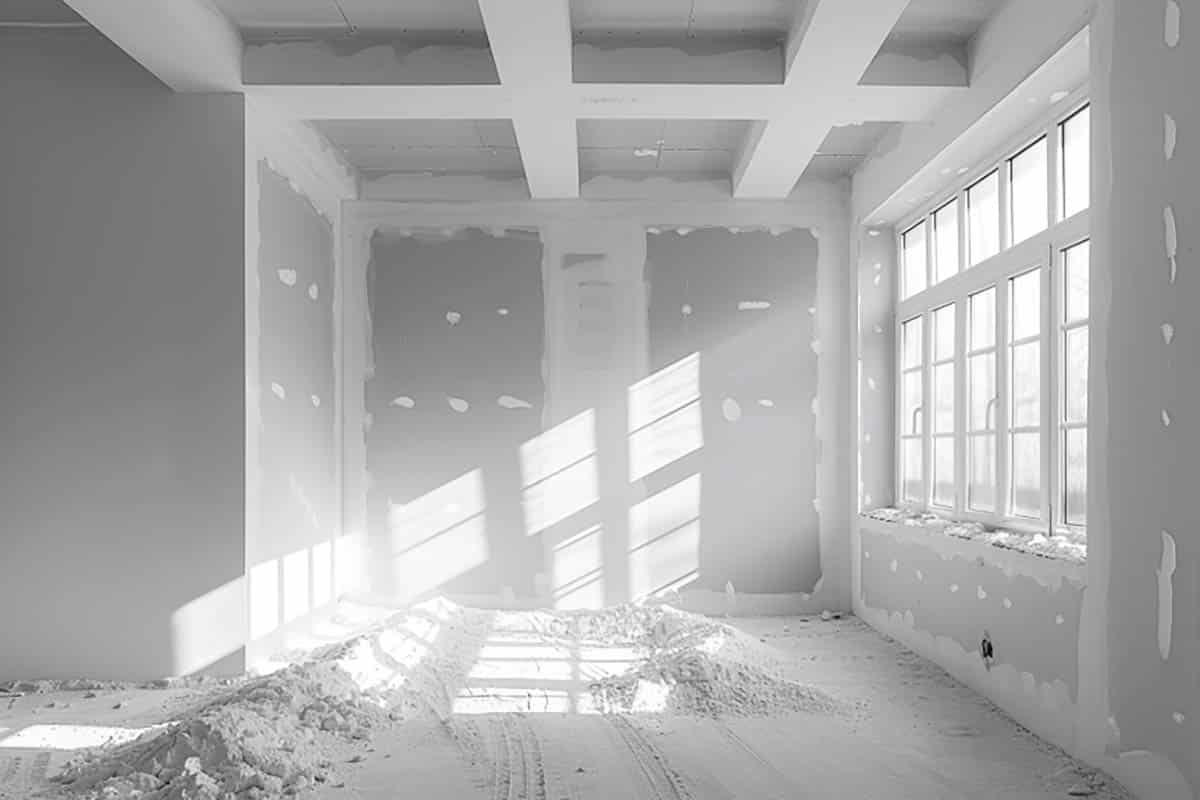Effortless Planning With The Precision Drywall Calculator
Welcome to the advanced drywall calculator! This handy tool makes estimating your drywall needs for any project simple.
Advanced Drywall Calculator
Room Dimensions
Doors and Windows
Added Doors and Windows
How the Drywall Material Calculator Works
To begin follow these steps:
Adding Rooms – Start by entering the length, width and height (in feet) of each room in your project. Click the “Add Room” button to add multiple separate room calculations.
Doors and Windows – Next, measure any doors or windows in inches and input the dimensions. The calculator will automatically account for these openings when determining drywall needs.
Drywall Specs – Choose your preferred drywall thickness (typically 1/2 or 5/8 inches). Enter the standard sheet size you’ll be purchasing along with the current price per sheet. Factor in 10% extra for waste.
Calculate and View – Click “Calculate” and see a detailed room-by-room estimate along with the total drywall boards and cost for the whole project. Make any needed changes or additions and recalculate for an up-to-date estimate.
Additional Usage Tips – For accuracy, carefully measure room dimensions in feet and doors/windows in inches. Consult drywall specialists for advice on sheet thickness and other specifics for your particular project.

Buying Drywall Tips
When undertaking any drywall project, you’ll need to make some key material decisions upfront. The most common sheet size is 4’ x 8’, which provides a balance of manageability and minimizing seams. Go thicker for ceilings or soundproofing. 1⁄2” is standard for walls, while 5/8” adds sturdiness and noise reduction.
The old adage of measure twice and cut once hold true and you should always double check your measurements before you purchase sheetrock. When purchasing make sure you check each piece individually for damage. This could be crushes, crumbling, crack or dents in the surface. Avoid any sheets that have water damage or mold visible.
Before buying price shop several local stores to see who has the best pricing. In addition to the price per sheet, look for bulk discounts pricing if you’re doing a big job. Also consider the delivery costs and factor that on to the budget. you may want professional delivery to help prevent damage from occurring in transport and make sure to thoroughly inspect the shipment before the driver leaves your worksite. Timing your purchase may be more hassle than its worth, but major home improvement stores have sales or coupons around major holidays that can save you money.
You should look to buy 10% more than you need to account for waste, including different cuts and possible mistakes so you don'[t have to head back to the store or order more mid-project. Having a little extra can also help later on if you ever need to make repairs.
Choose your drywall type based on the space. Regular drywall works for most rooms, but high-moisture areas like bathrooms benefit from moisture-resistant green board. Garages and other fire-prone spaces require fire-resistant Type X, as per building codes. Soundproof drywall reduces noise transfer if privacy is a concern. It comes down to assessing the demands of the specific project.
Don’t skimp on the joint compound; you’ll need ample “mud” for multiple coats when finishing seams. Opt for versatile all-purpose compound. Paper tape saves money for most applications, but self-adhesive fiberglass mesh works well for repairs. Round up on materials, adding 10-15% extra to account for inevitable cuts and errors.
The right tools also matter – a utility knife, T-square, screw gun, and sanding block make the job much easier. Safety gear like a mask and gloves are essential too. And remember that drywall sheets weigh nearly 60-70 pounds each. Lifting requires care to avoid back strain or foot injuries. Support panels on both ends and get a helper whenever feasible. With smart planning and quality materials, your drywall project will turn out smooth, sturdy, and picture-perfect.
The drywall calculator aims to estimate standard needs, but every project has unique requirements. It is to be used for entertainment purposes and you should always double check the materials you need. Use the calculator as a guideline in planning, along with the recommendations of professionals.
With an easy step-by-step process, this drywall calculator transforms estimation from headache to simple! Just measure, enter, and view a detailed breakdown with total cost. Now tackle your next drywall project with confidence!






